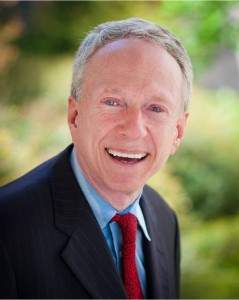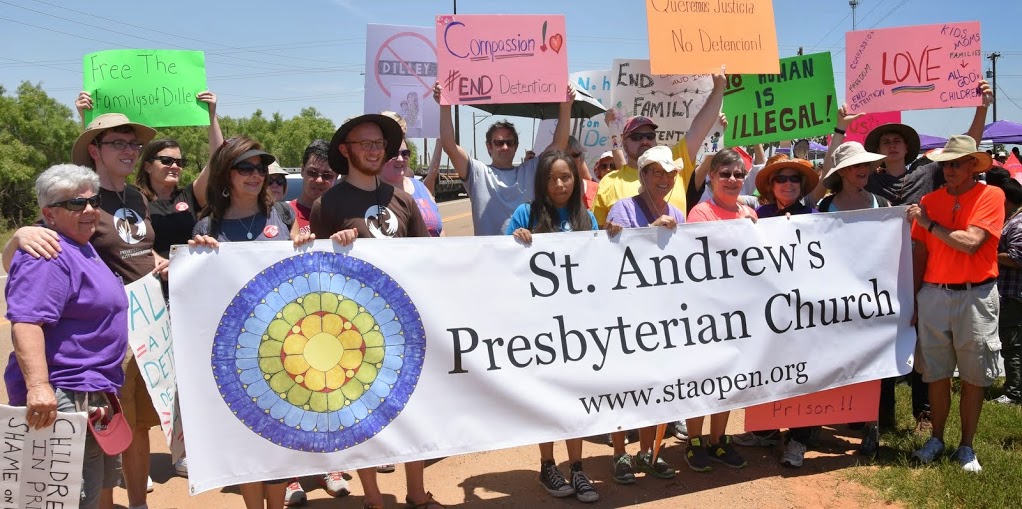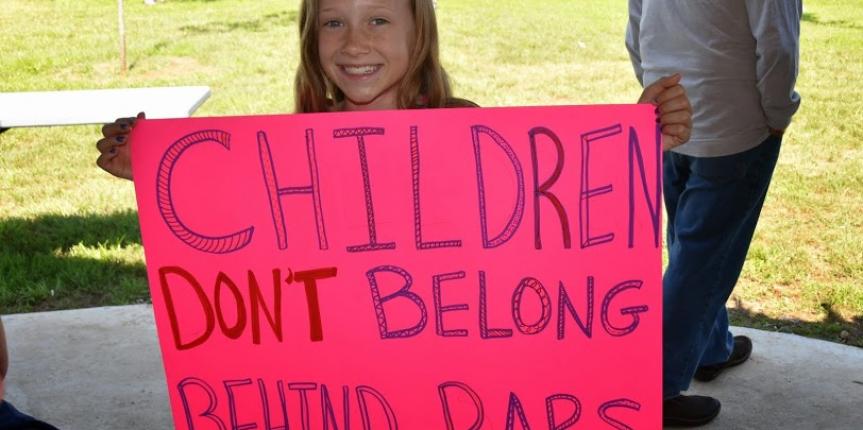Bob Libal is a quiet, unassuming young man. He and his organization’s video compelled me to participate in a march with about 700 other protesters on May 2, 2015. I’m 68 years old and I’ve never marched…until now. Bob Libal and Grassroots Leadership made that happen.
My husband Robert, our 9-year-old granddaughter Hudson and I went to Dilley, Texas to protest the detention of mothers and their children, refugees who were seeking asylum here.
“Refugees are not ‘illegals’. In order to seek asylum in the US, they must come to this country and ask for it. They cannot petition for asylum from Central America and receive a visa in advance,” so states Alfonso Gonzales, Assistant Professor, Department of Mexican American & Latino Studies, UT Austin. He goes on to say, “Once they have requested asylum and expressed a fear of returning, they are legally entitled to a process for determining their refugee status. They are placed in civil proceedings, not criminal proceedings, and generally any violation of immigration law is waived if they prove their refugee status.”
Jim Comer, author, communications consultant and good friend, also marched. Below is his compelling op-ed piece, “Shoulder to Shoulder” which appeared in the Austin American-Statesman.
Jim Comer
May 13 at 10:20 pm
Shoulder to Shoulder

For the last six years, I’ve watched history unfold from the comfort of my couch. I glimpsed it on the evening news or internet sites. Freedom of speech was a noble phrase, but it applied to other people: Protesters occupying Wall Street. Students using Twitter to topple a dictator in Egypt. Pro-democracy marchers in Hong Kong. I was silently supportive, but never dreamed I’d be marching with them.
Then the Obama administration converted a former oil field camp in Dilley, Texas into the largest detention camp in America. The inmates? Mothers and children who risked their lives fleeing murder and mayhem to seek asylum in America. The land of the free herded hundreds of them into a 2,400 bed for-profit prison run by Corrections Company of America. Many had been there for months, treated as criminals, separated from their loved ones, with no idea whether they would get a fair hearing or face deportation.
Incarcerating families cost U.S. taxpayers $266 to $300 a day – the price of room at the Four Seasons Hotel. Mothers and children did not represent a danger to society and could have been monitored by humane, inexpensive means such as ankle bracelets or unannounced home visits. Those simple alternatives would have cost $17 dollars a day or less.
My church, St. Andrew’s Presbyterian in Austin, joined a protest march on May 2nd, to bring attention to their plight. Our 300 member congregation filled two buses with 80 members for the two-mile march in a barren south Texas town. Surprisingly, I was one of them.

Suddenly freedom of speech was up close and personal. For the first time since the Vietnam War, I’d be walking instead of talking. The last time I’d been politically active was knocking on doors in the snows of New Hampshire campaigning for Obama. The irony was not lost on me.
When we arrived in downtown Dilley – both blocks of it – we joined 700 fellow protesters. We were a patchwork quilt of America. There were children and grandparents, Anglos and Latinos, professionals, blue collar workers, students and retirees. We came from all over Texas, Mexico, California, New York, New Mexico and Iowa. One member of our church had terminal cancer and was on hospice care, but was determined to march.
After the 150 mile ride to Dilley, we ate sandwiches, drank lots of water, listened to fiery speeches in English and Spanish, and then got in line for the march. The Dilley police were professional, polite and diverted traffic so that we could march safely. This was not Damascus, the Gaza Strip or Baltimore.
I held a sign that said “Shut it down” and chanted loudly as we hit the streets. I’d hoped we’d have spectators – even if they opposed us – but the streets were empty. Our best audience were drivers of 18-wheelers who honked their support. We passed the interstate, a Texas State prison and finally came to the gates of the detention center. There were at least thirty officers staring at us 50 yards away, many with guns at their side. They weren’t smiling.
Near the front gate, there was a platform and we heard speeches from immigrants who had survived the perilous journey. A four year old girl spoke with such power and emotion that I didn’t need the translator for her words to touch my heart. Then a handsome young man told of his trip on top of a freight train across Mexico. He was so eloquent that it took two minutes before I noticed he was missing an arm. That’s a high price to pay for freedom.
As I gazed at the massive detention center in the distance, I suddenly felt as if I had linked arms with all the protesters I’d seen on television. I was one with those in Syria, Tunisia, Egypt, the Gaza Strip, and Ferguson, Missouri. I didn’t face bullets, beatings, racial profiling or jail, but for a few minutes I was one with marchers everywhere. I experienced a feeling of universal brotherhood I’d never known before.
At last I understood the words engraved on the Statue of Liberty: “Give me your tired, your poor, your huddled masses yearning to breathe free. Send these, the homeless, tempest-tossed to me.” I realized that phrase is truer today than ever. It is the promise of America.
I left Dilley a changed man, catapulting from comfortable observer to born again activist. I had tasted the liberating power of free speech and found my voice.

